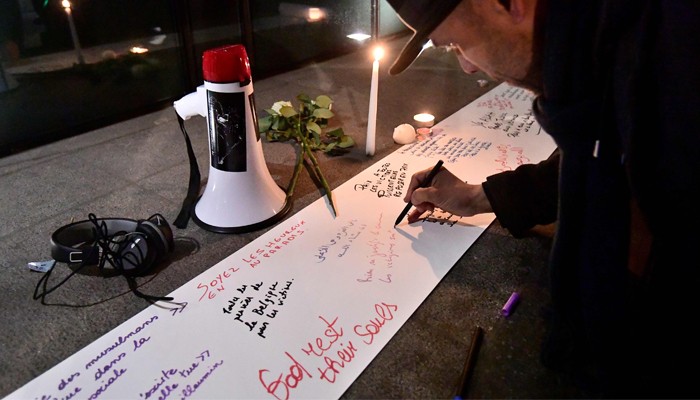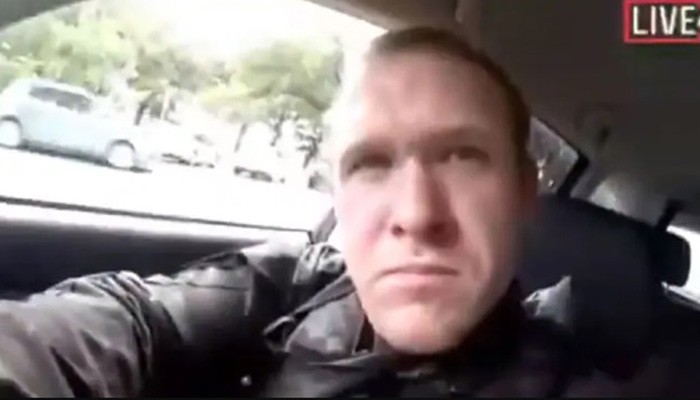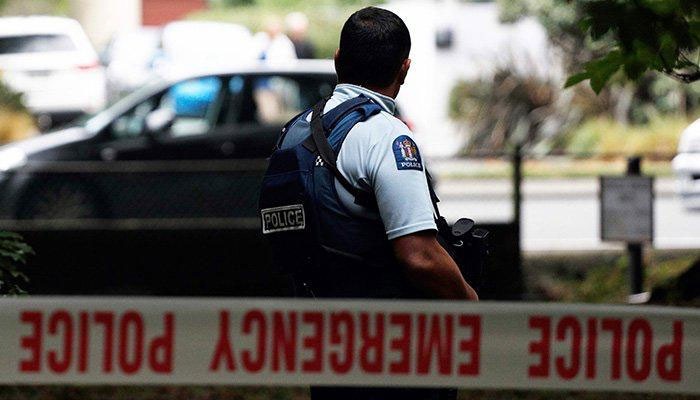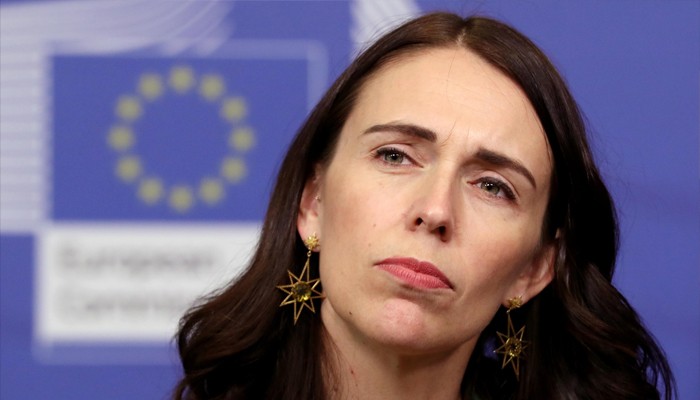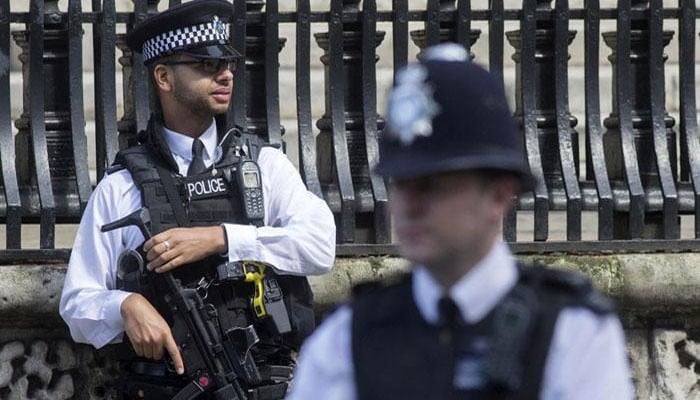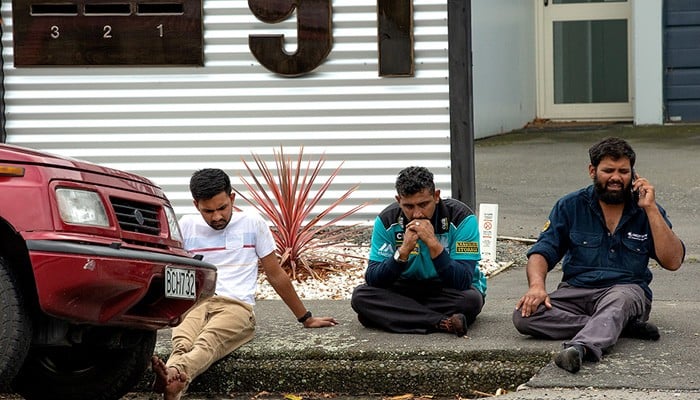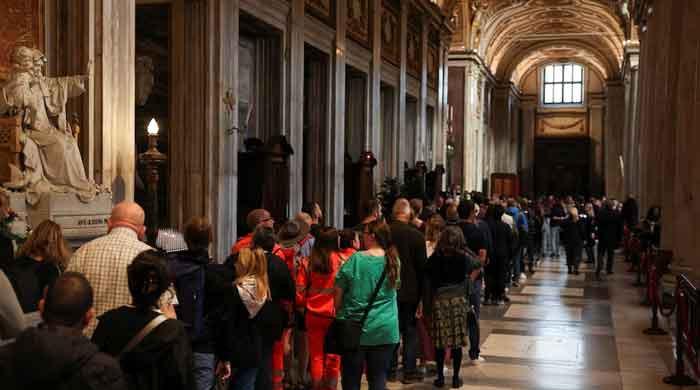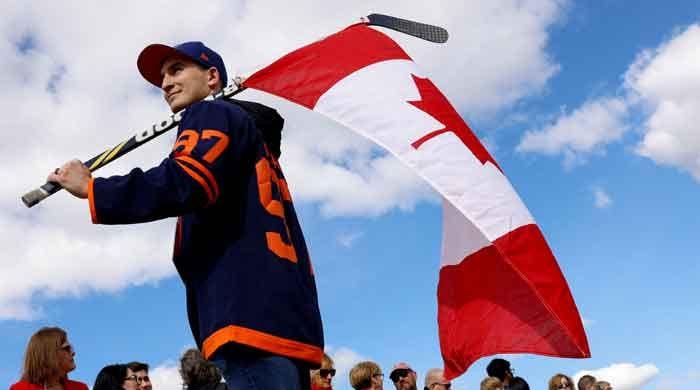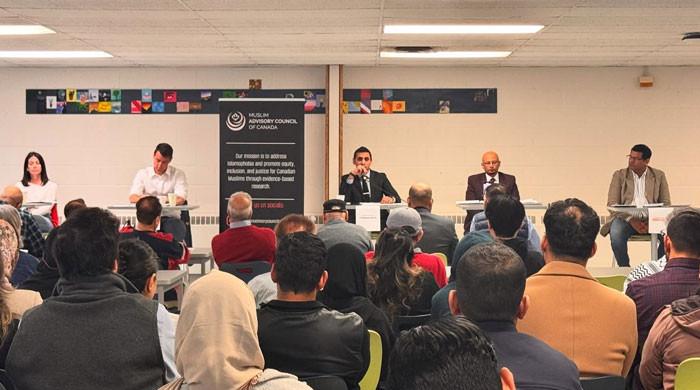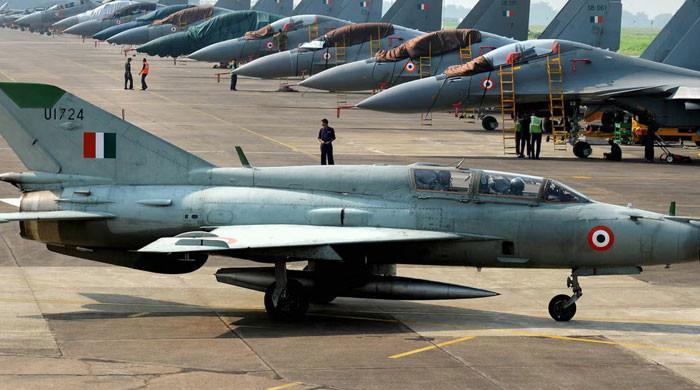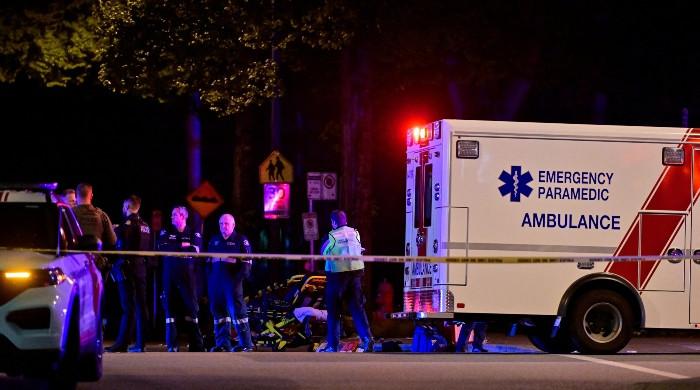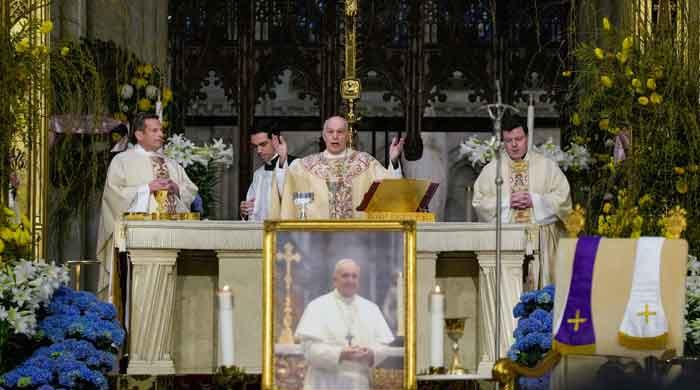Christchurch terrorist charged with murder post-NZ shootings, no bail requested
The Christchurch shooter had published a racist manifesto on Twitter before going on to live-stream his rampage
March 16, 2019
CHRISTCHURCH: The white supremacist terrorist who launched a gun attack in mosques in New Zealand appeared in a local court early Saturday morning on murder charges.
The right-wing extremist, identified as 28-year-old Australian Brenton Harrison Tarrant, was to be remanded in custody after his appearance at the Christchurch District Court, with no bail requested. He was charged with murder in a court appearance that police had said would be held behind closed doors for security reasons.
Handcuffed and wearing a white prison suit, Tarrant did not speak. He is scheduled to appear in the South Island city’s High Court on April 5 and, according to police, was likely to face further charges.
Tarrant had published a racist manifesto on Twitter before going on to live-stream his rampage, which left at least 49 people, including women and a four-year-old child, dead.
The Christchurch shooter's two targets were the Al Noor Mosque, where 41 people were killed, and a second, smaller mosque in the suburb of Linwood, where seven more died.
The remaining victims, including a Pakistani man who tried to stop the terrorist, succumbed to their wounds in local hospitals.
The Pakistani man who passed away was identified as Rashid from Abbottabad, sources informed Geo News, and was injured during the rampage in a bid to overpower the attacker. His son, Talha Naeem, was also among those who died in the horrific mass shooting.
On the other hand, the survivors included all 17 members of Bangladesh's cricket team, whose game against New Zealand on Saturday has been postponed, and a Palestinian man who fled for his life after seeing someone being shot in the head.
The terrorist, who was believed to be a personal fitness instructor, had documented his radicalisation and two years of preparations in a lengthy, meandering and conspiracy filled far-right "manifesto".
He had also live-streamed footage of himself going room-to-room, victim to victim, shooting the wounded from close range as they struggled to escape in the main Christchurch mosque.
'Outrageous … beyond imagination'
Outside the court, guarded by heavily armed police in body armour, the sons of 71-year-old Afghan man Daoud Nabi demanded justice.
After travelling the world "he stopped in New Zealand and said 'here's a slice of paradise'," Omar Nabi told AFP. "It's outrageous, the feeling is outrageous. It's beyond imagination."
The unnamed Palestinian man who managed to survive the shooting said: "I heard three quick shots, then after about 10 seconds it started again," said the man, who did not wish to be named.
"Then people started running out. Some were covered in blood," he told AFP.
The attack shocked the local Muslim population, many of whom had come to New Zealand as refugees.
'Bodies all over'
One witness told news website Stuff he was praying when he heard shooting — and then saw his wife lying dead on the footpath outside when he fled.
Another man said he saw children being shot. "There were bodies all over," he said.
At least two Jordanians were among the dead, according to that country's foreign minister, while Pakistan foreign ministry spokesperson Mohammed Faisal said five citizens of his country were missing.
READ: A look at attacks on houses of worship over last decade
Earlier, New Zealand Prime Minister Jacinda Ardern had said the victims were from across the Muslim world, with Pakistan, Turkey, Saudi Arabia, Bangladesh, Indonesia, and Malaysia rendering consular assistance.
Terming it a terrorist attack, Ardern said the shooter was not on any watchlist, did not have a criminal record, and had legally purchased the firearms, which included two semi-automatic weapons, two shotguns, and a lever-action gun.
'Our gun laws will change'
"The offender was in possession of a gun licence" obtained in November 2017, she said, and he started purchasing the weapons the following month.
"While work is being done as to the chain of events that led to both the holding of this gun licence, and the possession of these weapons, I can tell you one thing right now — our gun laws will change," she vowed.
Mass shootings are very rare in New Zealand, which tightened its gun laws to restrict access to semi-automatic rifles in 1992, two years after a man shot dead 13 people in the South Island town of Aramoana.
However, anyone over 16 can apply for a standard firearms licence after doing a safety course, which allows them to purchase and use a shotgun unsupervised.
'No guarantee the risk is limited'
Separately, two other people remain in custody, although their link to the attack is unknown. A third person who was earlier arrested was said to be a member of the public with a firearm who was trying to help.
Police warned New Zealanders Saturday to remain vigilant, saying there was "no guarantee the risk is limited" to the Christchurch region.
Two improvised explosive devices (IEDs) were found in a car and neutralised by the military, while police raided a home in Dunedin, where Ardern said the suspect was based.
"We will be looking closely to build a picture of any of the individuals involved and all of their activities prior to this horrific event," police added in a statement.
Mosque warning
New Zealand police described the footage shot by the gunman as "extremely distressing" and warned web users that they could be liable for up to 10 years in jail for sharing such "objectionable content".
In addition to the footage — which AFP has verified, but is not distributing — a number of pictures were posted to a social media account showing a semi-automatic weapon covered in the names of historical figures, many of whom were involved in the killing of Muslims.
The attack has shocked New Zealanders, who are used to seeing around 50 murders a year in the entire country of 4.8 million and pride themselves on living in a secure and welcoming place.
Police warned Muslims across the country not to visit mosques "anywhere in New Zealand" in the wake of the Christchurch attacks. Friday is Islam's holy day.
Christchurch, a relatively small city on New Zealand's south island, hit global headlines in 2011 when it was struck by a deadly earthquake, killing more than 180 people.

